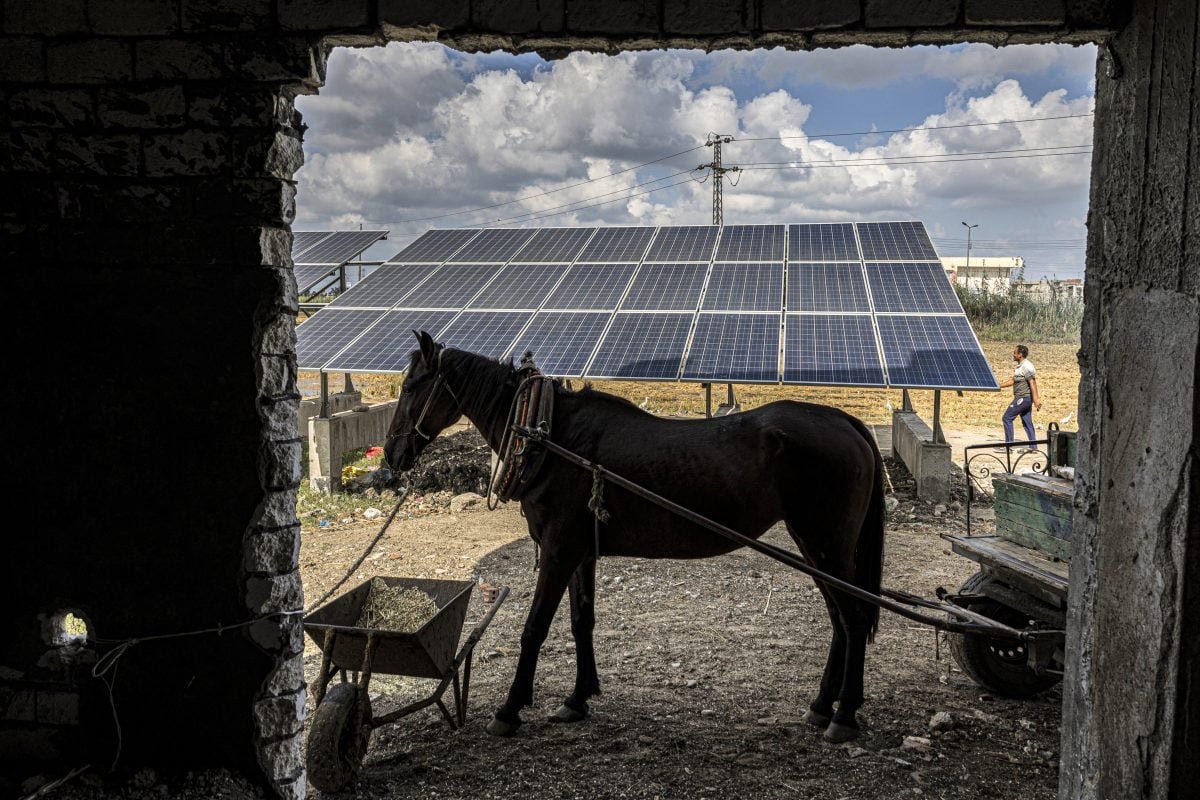Basic things to those who live in high-income countries, like using a fridge – which means that your food can be stored for longer – were not possible,” says Benjamin Memmi, CEO of Axian Energy, recalling the situation in Madagascan communities before they were connected to electricity.
“You are so used to sleeping in the dark, reading with lanterns or candles that you cannot really conceptualise a place with a reliable grid,” says Oluwole Eweje, CEO and founder of Watt Renewables, describing what it was like for him growing up in Nigeria with limited access to electricity.
Rebecca Aime, CEO and founder of Patapia, a Ugandan enterprise which gives refugees loans to buy affordable clean energy products, speaks of the struggles that her family went through in Uganda as refugees. “I think if my mother had access to capital, she could have started a business, then all of this suffering would not have happened. I want to give other refugees access to energy so that they can access more opportunities.”
Eweje of Watt Renewables and Memmi at Axian are also working to fill the gap, providing mini-grid or off-grid solar solutions to communities. “There are many infrastructure problems in Nigeria but I chose energy because I believe that the key route to modernisation of economies is to have reliable power, first and foremost with electricity,” says Eweje.
The importance of electrification
Opportunities for individuals increase when there is reliable energy access, and securing that access can change community life in unimaginable ways. World Bank research demonstrates a strong correlation between the increased use of electricity and GDP growth, attributing it to electricity’s role in driving industrial and economic activity.
Axian-owned WeLightAfrica, which deploys and operates mini-grids in rural areas, says that electrifying new areas has brought enormous social benefits. In its 2023 impact report the firm claimed that electrification of schools near to its projects has helped to facilitate an increase of 35% in students’ exam pass rate. It said, too, that extending electricity to healthcare centres has facilitated improved care for 10,500 women who gave birth at night.
There is plenty of room for more such improvements: notoriously, around 600m people in Africa lack access to electricity, or about half the total population, according to the International Monetary Fund. Demand for electricity is expected to rise further as the continent industrialises and as the continent’s population doubles by 2050.
Let it be renewable
Where is the electricity to supply this need to come from, though? Don’t Gas Africa, a group campaigning for an end to fossil fuels on the continent, argues that “It is widely recognised that the lack of lock-in to centralised and expensive fossil fuel grids in most regions in Africa provides a significant opportunity to leapfrog directly to more advanced and more affordable renewable energy technologies, a transition that will be more costly on other continents.”
Africa has significant renewable energy resources. According to the International Energy Agency, the continent is home to 60% of the best solar resources globally. Energy experts and campaign groups say these resources offer an exceptional opportunity to move on from the fossil fuel era, and that renewable energy is both cost-efficient and crucial if Africa is to universalise access to electricity without increasing emissions from fossil fuels that drive global warming.
Not a walk in the park
But industry leaders say significant challenges still stand in the way of project execution. These challenges differ depending on the location and purpose of the project, but there are several common themes.
Eweje, who often works in remote parts of Nigeria, sees site access as a crucial difficulty.
“Infrastructure building is hard. You are hauling tons of equipment, which could take you half a day. You don’t necessarily have the right tools for it, there’s no fancy forklift. This makes it tough in the distributed energy space.”
Chris Flavin is interim CEO of UK-government-backed Gridworks, which is working with Mozambique national utility Electridade de Moçambique on the Chimuara-Nacala power transmission project, spanning 670 km as the crow flies.
He states that “one of the biggest challenges is the project development phase, carrying out detailed feasibility reports for the line, designing infrastructure, dealing with environmental and social concerns – as there are people living in the path of the line who will need to be compensated.”
Involving communities
Compensation is just one of the ways in which renewable energy enterprises must interact with the local communities they come into contact with. Development finance institutions (DFIs) have strict requirements in place when it comes to how the companies they invest in must operate.
Even smaller-scale companies are required by investors to fulfil sustainability requirements – for example to ensure that the value of their projects is shared locally.
Mohamed Mansour, chairman of Infinity Power, which has the majority of its projects in South Africa and Egypt, says that considering the needs of local communities is key to his operations.
“You definitely have to get local communities involved, otherwise there is no project. It is not an issue, but a blessing if you do the right thing. We really try to do more than just tick boxes.”
“On one occasion we fought very hard against lenders to hire workers from the town as cooking staff on site. On another occasion we woke up to find that a cable roll had gone missing. We didn’t call the police: we called one of the elders from the nearby village. Within three hours, the cable was returned.”
According to a Gridworks spokesperson, the key thing for them as investors is to ensure that their partner organisation, Electricidade de Moçambique, abides by a series of national and international laws related to the project. A law in Mozambique, for example, requires resettlement plans to be drafted for people whose housing or living space is affected by construction. By law, developers must construct replacement housing and even whole villages.
Financing change
Obtaining finance is, of course, another key challenge. According to Flavin, more innovative financing solutions are needed to fund renewable energy projects in Africa.
“Government balance sheets are struggling to sustain this level of borrowing,” he says. “The pandemic has made it tough. Governments need to look more widely. Private finance has been used around the world when countries have had to expand their grids,” he says.
Gridworks’ deal in Mozambique will be the first project of its kind in the country to use private investment to support the development of the country’s electricity transmission sector. The firm says the deal “reflects the Government’s desire to attract private sector financing for the development of its key infrastructure”.
Africa’s total external public debt has almost tripled since 2009, forcing African countries to divert funds away from public spending to debt servicing. According to the international renewable energy agency (IRENA), Africa has to de-risk and promote private sector investment because African energy needs are far greater than available public funds.
Although Africa accounts for one-fifth of the world’s population, the region currently attracts only 3% of global energy investment, according to the International Energy Agency (IEA).
“We (as an enterprise) also need to survive and make our business sustainable. Part of that is growing and scaling in the way we want to… we need money for that,” says Aime.
Want to continue reading? Subscribe today.
You've read all your free articles for this month! Subscribe now to enjoy full access to our content.
Digital Monthly
£8.00 / month
Receive full unlimited access to our articles, opinions, podcasts and more.
Digital Yearly
£70.00 / year
Our best value offer - save £26 and gain access to all of our digital content for an entire year!

 Sign in with Google
Sign in with Google 



